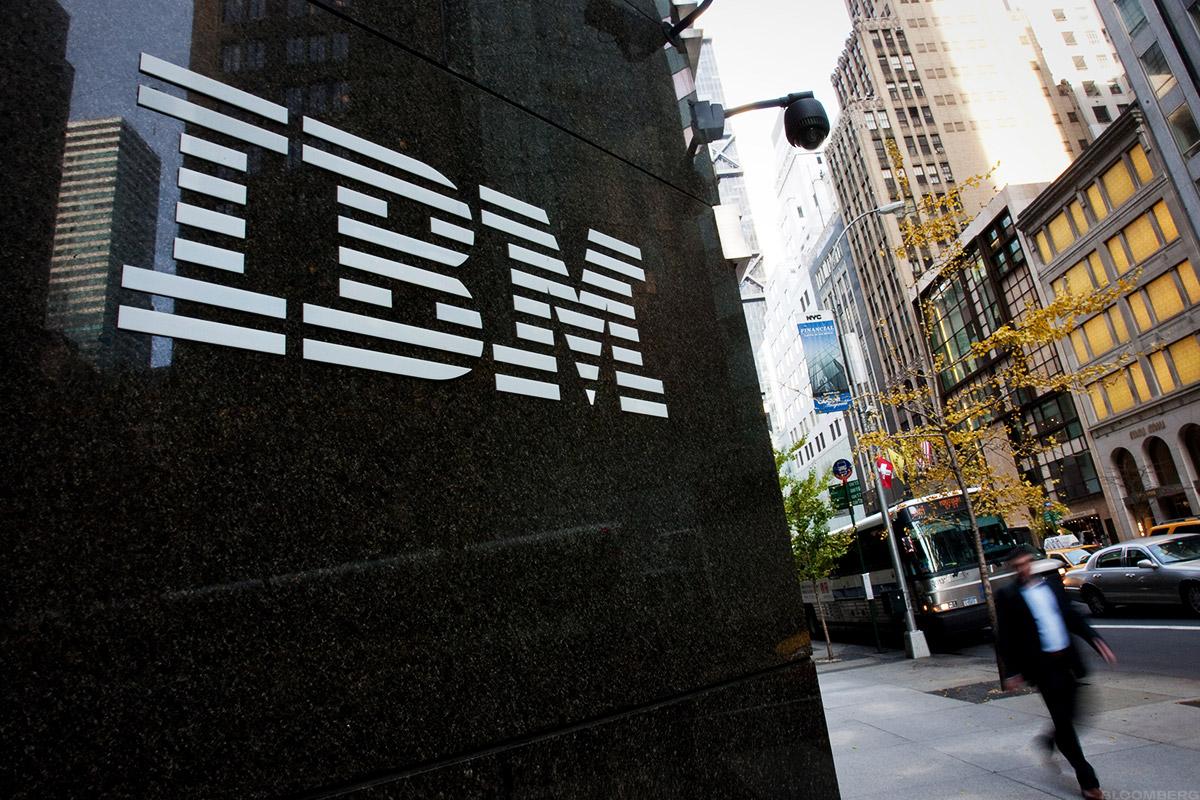
[ad_1]
International Business Machines (IBM) shares slumped to the lowest level in nine years Monday after the group said it would pay the equivalent of nearly a third of its market value for Red Hat (RHT) in a $34 billion deal that both jump starts its move into the $1 trillion cloud computing market but raises questions over the price it’s prepared to pay for the Linux distributor.
The stock was also pressured by a decision from Moody’s Investors Service to put IBM’s A1 credit rating on review for a possible downgrade, citing a “substantial increase in leverage” … and a “departure from IBM’s historical acquisition philosophy of making small, tuck-in acquisitions that limit integration risk.”
IBM will pay $190 each for all of the outstanding shares of Raleigh, North Carolina-based Red Hat, a 63% premium to its Friday closing price of $116.68 and will finance the $34 billion enterprise value deal, which CEO Ginni Rometty called a “game changer” with a mixture of cash and debt. Red Hat will operate as a distinct unit within IBM’s hybrid cloud division, the company said, and will be run by current head Jim Whitehurst.
“We believe Red Hat is a trusted open source leader with a large enterprise customer base, and a share gainer in its traditional categories (server operating systems, application server markets, middleware) while participating in very strong secular trends such as re-architecting of the data center, cloud computing, virtualization, and big data,” wrote analysts at Oppenheimer. “We question IBM’s ability to extract incremental value from Red Hat, taking into account its M&A track record and mixed stature in the developer community.”
IBM shares were marked around 3% lower in pre-market trading Monday, indicating an opening bell price of $121.291 each, the lowest since November 2009 and a move that would extend its year-to-date decline to 21% and value the Armonk, New York based group at just under $110 billion. Red Hat’s market cap, based on IBM’s $190 per-share bid, is $33 billion, and its shares were marked 51% higher at $176.50, suggesting investors are pricing in some execution risk into a deal that still needs to be approved by shareholders.
Rometty told CNBC Monday that its $190 offer was a “fair price” for Red Hat, and repeated her view that she can both integrate the company, generate earnings and continue growing IBM’s dividend despite the $33 billion it will lay out for the Raleigh, North Carolina-based group.
The deal is expected to be free cash flow and gross margin accretive within 12 months, IBM said, and will accelerate revenue growth and support a solid and growing dividend. The group, however, said it will suspend planned share buybacks in 2020 and 2021 as a result of the acquisition. IBM said it remains “committed to maintaining strong investment grade credit ratings” and will target a leverage profile consistent with “a mid to high single-A” grade.
Earlier this month, IBM posted weaker-than-expected third quarter revenues as cloud computer deliveries slowed and a stronger U.S. dollar weighed on international sales, complicating Rometty’s uneven turnaround plans.
IBM said sales for the three months ending in September fell 2.1% from the same period last year to $18.8 billion, missing Street forecasts of $19.1 billion as cloud sales grew at around half the rate of the previous quarter.
Earnings were solid, at $3.42 per share, but slowing sales in IBM’s systems division, where revenue slowed sharply from the previous quarter and cognitive software sales — which include its Watson brand — fell 6% to $4.15 billion. Technology Services & Cloud Platforms saw revenues fall 2% to $8.3 billion.
IBM’s gross margin for the September quarter was 49.5%, essentially flat on a year-to-year basis and the best figure the group has posted in three years, according to CFO Jim Kavanaugh, and held to its full-year non-GAAP earnings guidance of $13.80 per share on free cash flow generation of around $12 billion.
Last, Linux operating system distributor posted weaker-than-expected earnings for its fiscal second quarter, which ended in August, and said sales for the three months ending in November would likely come in below forecasts withing a range of $848 million to $856 million.
However, CEO Whitehurst insisted in an interview with TheStreet, and in the company’s earnings call, that some one-time events are to blame, and that his firm’s competitive position hasn’t changed.
Source link